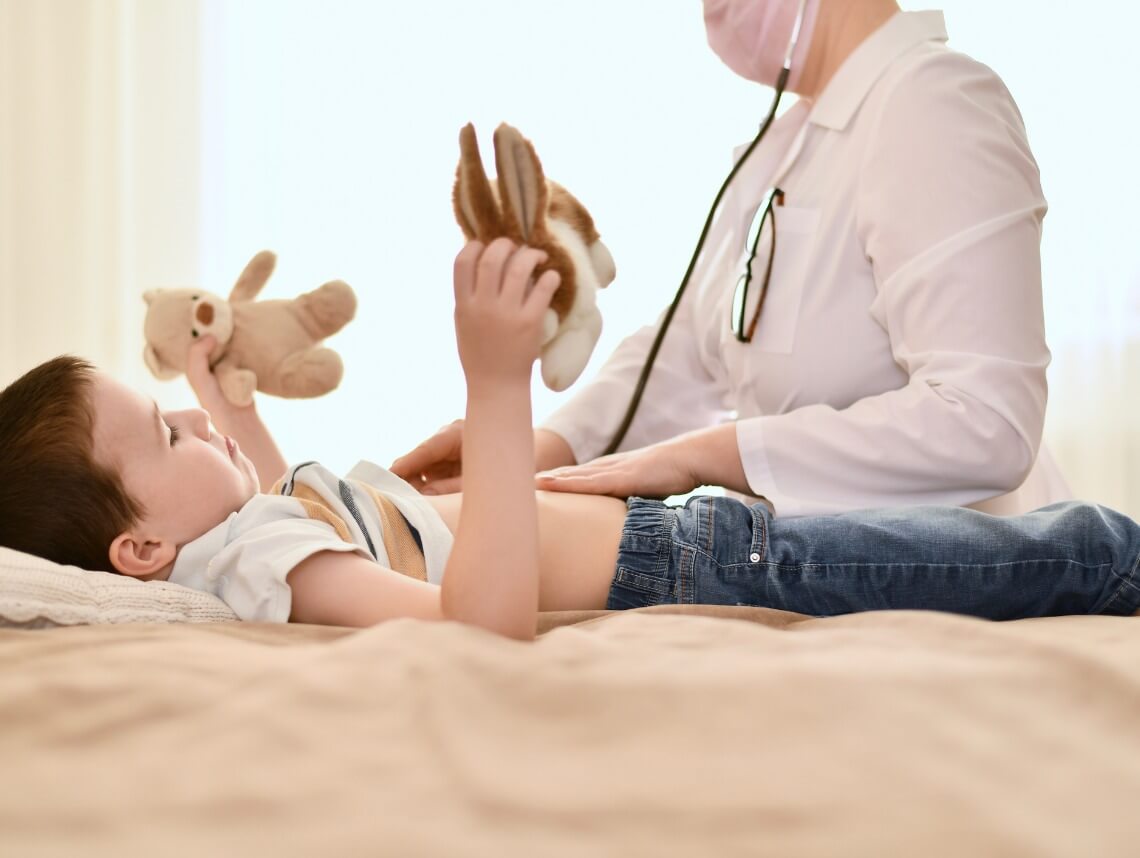At some point in your life, you’ve probably heard of a family member, friend, or friend of a friend who has had appendicitis. That’s because it’s a condition that affects 80,000 children each year, and 50% of children have a family history of the condition. In fact, it’s the most common reason children need emergency surgery. It’s incredibly painful and occurs suddenly — which can be alarming to any parent or loved one. So, what can you do for your child if they’ve had appendicitis?
What is appendicitis?
Your appendix is a tiny, worm-shaped structure attached to the large intestine. When your appendix swells and becomes infected, it’s known as appendicitis. It typically affects children between 11 and 20 years of age, but in rare cases, it impacts babies also. If the appendix becomes infected it can rupture and become life-threatening. That’s why it’s important to recognize the signs of appendicitis, such as:
- Swollen abdomen
- Pain that starts around the belly button
- Abdomen pain that persists for more than four hours
- Vomiting
- Nausea
- Loss of appetite
- Low-grade fever
- Diarrhea
- Constipation
6 Ways to Care for a Child With Appendicitis
If you suspect your child may have appendicitis, you should take them to their doctor immediately. Their doctor will determine if the cause of their pain is from the appendix or something else. Once diagnosed, the main treatment option is surgery to get the appendix removed. After post-ops, your child will require care at home until they recover. Fortunately, there are a few things you can do to make sure they have a swift and comfortable recovery process.
1. Organize Your Appointment Schedule
After your child has their appendix removed, they’ll have follow-up appointments to monitor their progress and ensure everything is healing properly. It’s important that you attend all of these appointments to prevent any complications from going undetected.
2. Follow the Doctor’s Care Instructions
Your child’s incision will take one to two weeks to fully heal. During that time, you’ll need to regularly clean and redress the wound. You’ll also need to look for signs of infection, including:
- Draining liquid
- Warm to the touch
- The wound is swollen, red, or looks painful
- Forms large crusts or scabs
- Produces a foul odor
- Pimples or blisters occur
3. Help Manage Their Pain
While an appendix bursting can be extremely painful, recovering from getting your appendix removed can also be uncomfortable. Your child will be prescribed medications to help them manage their pain. Make sure you follow dosage instructions accurately. If needed, request oral syringes from your doctor or nurse to help deliver accurate dosages.
4. Implement an Appropriate Diet
Talk to your doctor about the appropriate diet for your child during recovery. While there are typically no food restrictions — unless their appendix burst — your child may prefer bland food for the first few days of their recovery. This may include foods like mashed potatoes, rice, soup, and yogurt. But, some prescription medications may cause constipation, so make sure your child isn’t consuming too much dairy and is getting plenty of water and other fluids. Eating fiber-rich foods, such as oats, almonds, avocados, and more, can also help.
5. Allow Them to Rest
While physical exercise is typically good for children, your child needs plenty of time to rest and recover from surgery. If their appendix didn’t rupture, they may not need pain medication and can return to school and other activities after the first week. But, if their appendix burst or if they’re still taking pain medication, you should allow them to relax and take it easy for the full two weeks. Make sure to check with their doctor and get clearance before allowing your child to return to any sports or gym class — this can take up to four weeks.
6. Monitor Their Progress
Whether their appendix burst or not, your child will need time to rest and recover from surgery. It’s important that you monitor their health and take note of any changes. If they experience any of the following symptoms, you should call their doctor immediately:
- Fever greater than 101 degrees Fahrenheit
- Pain that is not relieved by pain medicine or gets worse
- Swelling, redness, or foul-smelling drainage from the wound
- Vomiting or diarrhea
- Inability to pass stools or gas
Contact Care Options for Kids for Home Health Care
It can be hard to balance your time between work, home, and caring for a child. That’s why our team of professionals at Care Options for Kids is here to help.
Our home health care services offer support in the comfort of your home. We refer loving and competent nurses to provide customized care for families — from a few hours a day to around-the-clock supervision. Contact us directly to speak with a home health care professional or request a free in-home assessment. Together we can determine the best plan of action to keep your loved ones happy and healthy.
If you or a loved one are considering Pediatric Home Health Care services, contact the caring staff at Care Options for Kids. Call today at (888) 592-5855.






